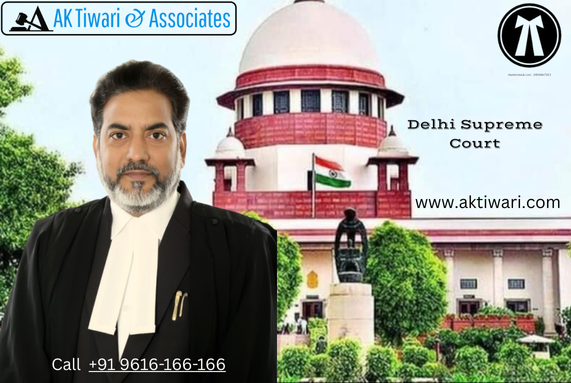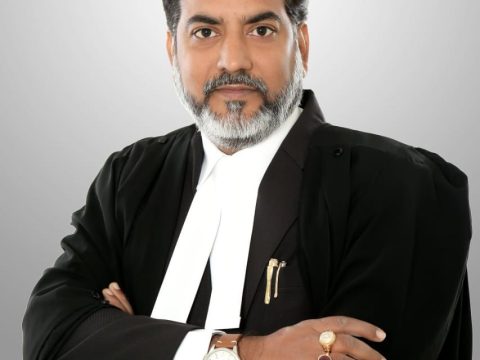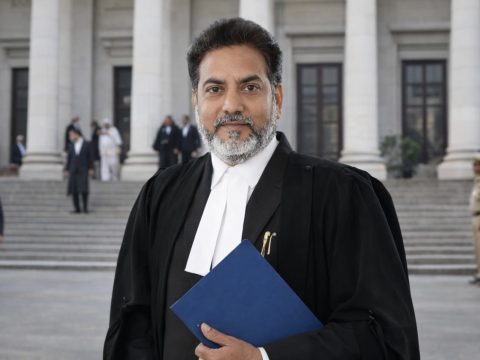
Advocate AK Tiwari – Best Matrimonial & Mutual Divorce Lawyer in Noida
September 13, 2025
Are WhatsApp, Email, Telegram, Signal & Other Electronic Records Admissible in Evidence? – Absolutely YES!
September 20, 2025Introduction
A will is one of the most important legal documents a person can execute in their lifetime. It decides how the property, wealth, and assets of a person are distributed after death. While the concept seems simple, in practice wills often become the subject of bitter disputes among heirs and family members. Courts are frequently called upon to determine whether a will is genuine, validly executed, and enforceable.
In India, proving a will has always required adherence to the provisions of the Indian Succession Act, 1925 and the Indian Evidence Act, 1872. However, questions often arise about how much evidence is necessary, the role of witnesses, the effect of registration, and the burden of proof in cases of challenge.
In 2025, the Supreme Court of India delivered a series of clarifications that restated and refined the law. These judgments provide much-needed certainty on how wills are to be proved and what litigants must establish. This article explores these developments in detail.
The Legal Framework Governing Wills
Before examining the recent Supreme Court clarifications, it is important to understand the statutory framework. Two key laws govern the proving of wills in India:
- The Indian Succession Act, 1925
- Section 63 sets out how a will must be executed and attested.
- It requires the will to be signed by the testator and attested by at least two witnesses.
- Attestation means the witnesses saw the testator sign or acknowledged the signature in their presence.
- The Indian Evidence Act, 1872
- Section 68 states that if a document is required by law to be attested (such as a will), at least one attesting witness must be called to prove execution.
- Sections 69–71 provide alternative methods when witnesses are dead, cannot be found, or deny execution.
Together, these provisions ensure that wills are not accepted casually but only upon strict proof, since after the testator’s death they cannot personally testify.
Why Proving a Will Is Different from Other Documents
Unlike ordinary contracts or deeds, a will becomes operative only after the death of its maker. This means the person most knowledgeable — the testator — is no longer available to testify. Courts therefore adopt a cautious approach. The law insists on:
- Proof of due execution (proper signing and attestation).
- Proof of sound disposing mind of the testator.
- Absence of suspicious circumstances, such as unnatural bequests or exclusion of close heirs without explanation.
This careful scrutiny makes the proving of a will more complex than proving other legal documents.
Supreme Court Clarifications in 2025
In 2025, the Supreme Court addressed several appeals where wills had been disputed. The Court took the opportunity to clarify long-standing ambiguities. The following are the key takeaways:
1. Registered Wills Enjoy a Strong Presumption of Genuineness
The Court reiterated that once a will is registered, it carries a presumption of due execution and genuineness. Registration involves the testator appearing before a registrar, verifying identity, and confirming voluntary execution. This official act creates a presumption that the document is not fabricated.
However, registration does not automatically prove the will. The attesting witness requirement still applies. Yet, when a will is registered, courts will start with the assumption of genuineness, and challengers must rebut this with convincing evidence.
2. Burden of Proof Lies on the Challenger
The Supreme Court emphasized that the burden of proof lies heavily on the person challenging the will. If a party alleges forgery, coercion, or lack of mental capacity, they must bring solid evidence. Mere suspicion, inconsistency, or conjecture will not suffice.
For example, simply alleging that the testator was old or unwell is not enough. The challenger must produce medical records, testimony of doctors, or other evidence showing incapacity at the time of execution.
3. Examination of at Least One Attesting Witness Is Mandatory
The Court reaffirmed that Section 68 of the Evidence Act requires the examination of at least one attesting witness, wherever possible. Even if the will is registered, the rule does not change.
If both witnesses are unavailable (due to death or being untraceable), then secondary evidence under Sections 69–71 may be used. But the Court cautioned that parties cannot avoid calling witnesses merely for convenience.
4. Suspicious Circumstances Must Be Cleared
The Court once again highlighted that if a will appears surrounded by suspicious circumstances — for example, major beneficiaries being present at execution, unnatural exclusion of heirs, or doubtful signatures — the propounder of the will must clear those suspicions with convincing evidence.
The law does not reject such wills outright, but it requires higher scrutiny.
5. Corroborative Evidence Strengthens the Case
The Court encouraged litigants to rely on corroborative evidence:
- Bank records showing financial control by beneficiaries.
- Property possession consistent with the will.
- Letters, diaries, or medical records reflecting the testator’s intentions.
Such evidence, when combined with registration and witness testimony, creates an unshakable foundation.
Step-by-Step Process to Prove a Will After 2025 Clarifications
Based on the Supreme Court’s clarifications, the process of proving a will now follows a clear pathway:
- Produce the Original Will
File the original document in court. Certified copies may be used only if the original is lost with proof of loss. - Examine an Attesting Witness
Call at least one of the two attesting witnesses to testify about the signing and attestation. - Establish Testator’s Mental Capacity
Lead evidence (doctor’s testimony, medical records, or witness accounts) to prove the testator was of sound mind. - Show Voluntary Execution
Witnesses should confirm there was no coercion or undue influence. - Address Suspicious Circumstances
If any exist, bring explanations. For example, if one heir is excluded, show prior disputes or reasons. - Reinforce with Corroborative Evidence
Documents, admissions by heirs, possession, and registration records should all be produced. - Deal with Objections
If challengers allege forgery or fraud, cross-examine their witnesses and counter with expert evidence if required.
Practical Implications of the 2025 Rulings
The Supreme Court’s clarifications have significant practical effects:
- For Executors/Beneficiaries: The path to proving a registered will is now smoother. Courts presume genuineness unless serious doubts are raised.
- For Challengers: The burden has become heavier. They must bring robust medical, forensic, or circumstantial evidence.
- For Lawyers: Greater emphasis must be placed on ensuring attesting witnesses are located and presented.
- For Testators (those making wills): Registration has become even more valuable. A registered will, backed by proper witnesses, is now very difficult to challenge successfully.
Illustrative Case Examples
- Case A — Registered Will, Attesting Witness Alive
Beneficiary produces the registered will and calls one attesting witness who testifies to execution. No strong challenge is made. Court upholds the will. - Case B — Unregistered Will, Suspicious Circumstances
The will excludes all children and leaves property to a distant relative. Beneficiary fails to explain why. Court rejects the will due to unremoved suspicion. - Case C — Will Challenged on Grounds of Unsoundness of Mind
Challenger produces medical records showing the testator was in intensive care and heavily sedated at the time of execution. Court finds incapacity and sets aside the will.
These examples show that while registration and witnesses are powerful, the surrounding circumstances remain important.
Tips for Making a Will That Will Stand in Court
- Always Register the Will
Though not mandatory, registration adds strong evidentiary value. - Choose Reliable Witnesses
Select witnesses who are trustworthy, likely to be available in the future, and not beneficiaries themselves. - Keep Medical Records
If elderly or ill, record a doctor’s certificate confirming mental capacity. - Explain Exclusions
If you leave out close family members, mention reasons in the will itself. - Retain Multiple Copies
Store copies safely and inform beneficiaries of the location. - Update When Circumstances Change
A new will automatically revokes earlier ones. Ensure the latest reflects your current wishes.
Conclusion
Proving a will in India has always been a sensitive and contested area of law. The Supreme Court’s clarifications in 2025 have now made the framework clearer. Registered wills enjoy a presumption of genuineness; the burden of proof lies on challengers; attesting witnesses remain central; and corroborative evidence plays a crucial role.
For testators, the lesson is clear: draft carefully, register the will, and ensure proper attestation. For beneficiaries, proving a registered will is now easier but still requires witness testimony. For challengers, courts will no longer entertain mere suspicion — strong proof is essential.
The 2025 rulings thus bring balance: they protect genuine wills while guarding against fraud. Anyone making or relying on a will in India must take note of these developments.





